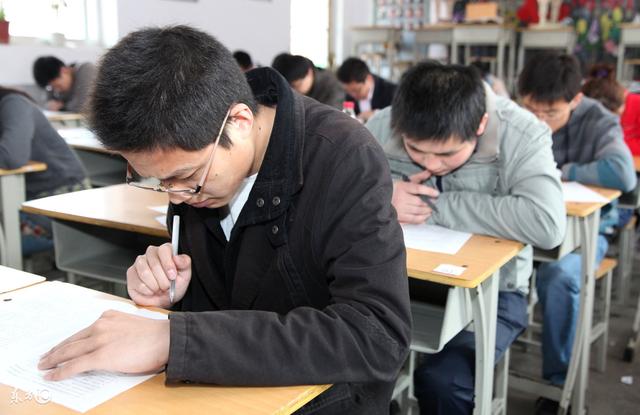高中英语不定冠词知识点(中高考英语重难点解析)
不定代词具有名词和形容词的性质,并有可数与不可数的区别,运用时需慎重。
1. one(s)
one有来代替上文中提到的单数可数名词以避免重复,其复数形式为ones。one可以被this,that, the, another, (n)either, which等词修饰。
比如:
Perhaps this chair is stronger than that one.
也许这张椅子比那张椅子更牢固一些。
—Could I have a look at that camera?
—Which one?
那一架?
—The one in your hand.
你手中那架。
注意:基数词不可以直接修饰one(s),如果不可以说two ones,three ones,但可以修饰形容词 one(s)。比如:
Now I have six balls in my hands, two red ones and four green ones.
我现在手中有六个球,两个红球,四个绿球。
I was happy with his birthday present:a birthday cake, a very big one. (one=birthday cake)
我对他送的生日礼物很满意,一个生日蛋糕,很大的一个。
2. some, any
some, any(一些)多充当代词,也可以充当形容词修饰可数句词或者不可数名词。
4. someone=somebody;anyone=anybody; no one=Nobody; everyone=everybody
someone=somebody某人, anyone=anybody任何人,无论事,用法同some, any。no one, nobody没有人,表示否定意义。everyone=everybody指“每个人”的意思。
比如:
someone=somebody某人
I could hear someone/somebody singing a pop song.
我可以听到有人在唱流行歌曲。
Did someone/somebody call this afternoon?
今天下午有人打来电话是吗?
anyone=anybody任何人,无论事
Can anyone/anybody tell me the correct time?
Anyone/Anybody can see that he has made a mistake in the sentence.
任何人可以看出他在这个句子中犯了一个错误。
no one=nobody没有人
No one/Nobody wanted to miss the football game.
没有人想错过这场跑球赛。
everyone=everybody每个人
Everyone/Everybody has a chance to speak in class.
每个人都有机会在课堂上发言。
5. anyone=anybody, any (one) of
anyone, anybody任何人,无论谁,后面不接of结构,而any (one) of表示特定人或者物中的任何一个,one可以省略。
比如:
When he had trouble in his work, he didn’t ask anyone/anybody for help.
当他工作中有困难时,他不请求任何人帮忙。
When he had trouble to his work, he didn‘t ask any (one) of them for help.
当他工作中有困难时,他不求他们中任何人帮忙。
You may borrow any (one) of these books.
你可以借这些书中的任何一本。
6. no one, nobody, none, nothing
(1)no one,nobody没有人
后面一般不接of结构。
None of特指“人或者物中没有一个”;nothing表示“什么也没有”。
比如:
No one/Nobody has ever swum across the river.
没有人曾游到过这条河的对面。
None of them has ever swum across the river.
他们中没有人曾游到过这条河的对面。
There is nothing in this bag.
这个包里什么东西也没有。
(2)no在此是形容词,只能修饰名词,不能误解用为代词。
比如:
×No of he books here is mine.
√None of the books here is mine.
这儿没有一本书是我的。
√No problem is too hard for him.
对他来说没有一个问题是太难的。
(3)注意下列问句的回答
—What’s there on the table.
桌子上有什么?
—Nothing.
什么也没有。
—Who’s there in the classroom?
谁在教室里?
—Nobody/No one.
没有人。
—How many mistakes did you make?
你犯了多少错误?
—None.
一个也没有。(强调数量)
—How much oil is there in the jar?
罐子里有多少油?
—None.
一点也没有。(强调数量)
7. everyone/everybody, every (one)of, each (one) of
(1)everyone, everybody(每个人)后不接of结构。every one…表示“特指的人或者物中的每一个”,该结构中one不能省略,为every每一个 是形容词,不能用作代词。比如:
Everyone/Everybody has to make a small present for the party.
每个人必须为聚会制作一样小礼物。
Every one of them has got a toy car as a present.
他们中每个人都得到一辆玩具汽车作为礼物。
Every one of the story books has a beautiful cover.
每一本故事书都有一个漂亮的封面。
(2)each每一个人或者物,后面可以接one of, one可以省略,还可以用同位语。比如:
Each (one) of us has a copy of English ABC.
We each have a copy of English ABC.
We have a copy of English ABC each.
我们每人都有一本《英语ABC》。
(3)every, each(每一个)都可以作形容词,修饰单数可数名词。every用于三者或者三者以上,侧重于全体,而each用于两者或者两者以上,侧重于个别。比如:
Every bedroom has got a telephone in it.
每个卧室都有电话。
Each bedroom has four beds.
每个卧室有四张床。
8. one, everyone
one泛指“一个(任何)人”,而everyone普遍指“每一个人”。比如:
One should do one’s/his best to help others.
一个人应该尽力帮助别人。
Everyone should do his/their best to help others.
人人应该尽力帮助别人。
9.both, all
both两者,用于指两个人或者物,而all全体,用于指三者或者三者以上的人或者物。这两个词均可作形容词修饰复数可数名词。例如:
Both (of) my parents are found of modern music.
我的父母都爱好现代音乐。
All (of) my students like that film star.
我所有的学生都喜欢那位影星。
I’ll take both (of) these hats.
这两顶帽子我都买了。
He bought all (of) these records.
他买下所有这些唱片。
注:both,all可以充当同位语,在句中位于be动词之前。
比如:
My sisters are both doctors.
我的姐妹都是医生。
We are all middle school students.
我们都是中学生。
The windows are all open.
窗子都开着。

10. either, any
either指“两者中的任何一个”,而any指“三者或者三者以上中任何一个”。
比如:
John is cleverer than either of the twins.
约翰比这对双胞胎中任何一个都聪明。
Alice swims faster than any of the boys here.
艾利丝游泳比这儿任何一个男孩都快。
The two seats are empty. You may take either one.
这两个位子都空着。你可以随便坐哪一个。
All these seats are empty. You may take either any one.
这些位子都空着,你随便坐哪一个。
注意:
either只能修饰单数可数名词,而both只修饰复数可数名词。比如:
你可以看到路两边的树。
You can see trees on either side of the road.
11. neither, none
neither指“两者都不……”,而none指“三者或者三者以上都不……”。
比如:
Neither of the two clocks tells the correct time.
这两个钟都不准确报时。
None of the watches keeps good time.
这些手表都走得不准。
neither只能修饰单数可数名词。
比如:
Neither job is difficult. So you can take either of them.
这两项工作都不难。所以你可以承担任何一项。
—What about these two rooms?
这两个房间怎么样?
—I am afraid neither room is big enough for us.
恐怕哪一间对我们都不够大。
12. another, other
(1)another作代词泛指“另外一个,别的一个”,其相应的复数形式是some others另外一些,或者some more再有一些。
比如:
I don’t like this dress. Show me another.
我不喜欢这条裙子。再给我一条。
These trousers are too long. Show me some others.
这些裤子太长。再给我几条。
I’ve given out all the programs, so I can’t give you another.
所有的节目单都发完了,所以我不能再给你另外一个。
—The chocolate cake is nice. Could I have some more?
巧克力蛋糕好吃。我可以再吃点吗?
—Sorry, I can’t give you any more.
对不起,我不能再给你了。
(2)another可用作形容词,通常修饰单数可数名词,而other其他的 修饰复数可数名词。others是一个代词,不能修饰名词。
比如:
I can’t finish the work alone, so I’ll ask another student to help me.
我一个人完成了这项工作,所以我要请另外一个学生帮助我。
The box is too heavy. I’ll ask some other students to help me.
这个箱子太重。我要请一些别的学生帮助我。
(3)one after another表示“一个接着一个”意思。
比如:
The soldier jumped into the water and saved one child after another.
这个士兵跳进水里救起了一个又一个小孩。
The fire fighter saved the old people one after another.
消防队员救出了一个又一个老人。

13. (a) few,(a) little
(1)用作代词或者形容词,(a) few与可数名词连用。(a) few(一些)表示肯定意义,相当于some,而few(不多,很少)表示否定意义。
比如:
A few of us went to the concert last right.
我们中有几个人昨晚去听了音乐会。
I was asked to say a few words at the meeting.
我被要求在会上说几句话。
Few of his friends have been sent abroad.
他的朋友中很少有人被派到国外。
Few students can find the answer to the problem.
很少有学生可以找到题目的答案。
(2)(a) little与可数名词连用。a little一些 表示肯定意义,相当于some,而little(不多,很少)表示否定意义。
比如:
I know a little about the European country.
我对这个欧洲国家的情况了解一些。
I have a little housework to do now.
我现在有些家务要干。
When he finished the exam paper, there was little time left.
当他答完试卷时,剩下的时间不多了。
(3)副词only, quite, just可以用于a few, a little之前,但不能用于few, little之前。
比如:
The question was difficult, so only a few pupils could answer it.
这个问题太难,所以只有几个学生能回答。
I can see quite a few wild ducks on the lake.
我可以看到湖有好几只鸭。
I could write just a little English then.
当时我只能写一点儿英语。
Fill the tank with petrol please. There is only a little left.
请给油箱加点油。只剩下一点儿了。
14. many, much
(1)用作代词或者形容词,many很多 与可数名词连用,而much很多 与不可数名词连用。
比如:
Many of the mistakes in the test paper are common.
这份试卷的错误中有许多是常见错。
He made many mistakes in the test.
他在测验中犯了许多错误。
Much of the work has been finished.
这项工作的许多部分已完成。
Much work has been done to make our school more beautiful.
为了使我们的学校更美丽,已做了许多工作。
(2)在疑问句与否定句中许多many与much。
比如:
Are there many birds here in spring?
春天这儿有许多鸟吗?
Is there much snow here in winter?
冬天这儿下雪很多吗?
We haven’t many exercises to do today.
今天我们没有许多练习要做。
We haven’t much homework to do today.
今天我们没有许多作业要做。
15. most
用作代词或者形容词,most大多数与可数或者不可数名词连用。
注意:“most 名词”泛指大多数,而“most of the 名词”特指某一群体中的大多数。
比如:
They did most of the jobs.
他们完成了这些工作中的大多数。
Most jobs can be learned if you work hard.
如果你努力,大多数工作都可以学会。
He spent most of the money on books.
他把这笔钱中的大多数工作都可以学会。
Most students want more time for play after school.
大多数学生希望课后有更多的时间玩耍。
,免责声明:本文仅代表文章作者的个人观点,与本站无关。其原创性、真实性以及文中陈述文字和内容未经本站证实,对本文以及其中全部或者部分内容文字的真实性、完整性和原创性本站不作任何保证或承诺,请读者仅作参考,并自行核实相关内容。文章投诉邮箱:anhduc.ph@yahoo.com






